 Laura Walikainen Rouleau was quoted in the article The Glamorous, Sexist History of the Women’s Restroom Lounge in The Atlantic’s CityLab.
Laura Walikainen Rouleau was quoted in the article The Glamorous, Sexist History of the Women’s Restroom Lounge in The Atlantic’s CityLab.
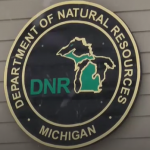 Richelle Winkler (SS) was quoted in the story “Deer hunter decline could cause issues for DNR funding,” on WLUC TV6.
Richelle Winkler (SS) was quoted in the story “Deer hunter decline could cause issues for DNR funding,” on WLUC TV6.

Richelle Winkler was quoted in the story “Michigan hunting in major decline,” originally published by the Detroit Free Press. The story was reprinted by media outlets throughout the country including the Grand Haven Tribune, and WZZM.

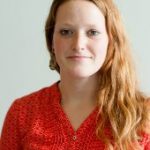
Richelle Winkler (PI) and Erin Burkett’s (EEP PhD student) research on female participating in fishing on the Upper Great Lakes was highlighted on NPR’s Morning Edition.

Adam Wellstead (SS) was an invited speaker at the Pipeline Safety Trust conference in New Orleans (Oct. 18-19). His presentation provided an overview of the recent Independent Risk Analysis for the Straits Pipeline effort that was led by Michigan Tech.
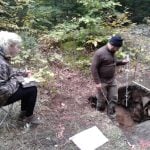 On the weekend of September 29, archaeologists from the Department of Social Sciences’ Industrial Heritage and Archaeology program , directed by Dr. LouAnn Wurst, along with the Hiawatha National Forest investigated Camp Au Train in Alger County near Munising. The weekend field work was highlighted in the article, Camp Au Train archaeology, featured in The Mining Journal.
On the weekend of September 29, archaeologists from the Department of Social Sciences’ Industrial Heritage and Archaeology program , directed by Dr. LouAnn Wurst, along with the Hiawatha National Forest investigated Camp Au Train in Alger County near Munising. The weekend field work was highlighted in the article, Camp Au Train archaeology, featured in The Mining Journal.
Our research also focuses on aspects of the everyday life of the CCC enrollees and the German POWs while they lived at Camp Au Train. Historic records and oral histories provide a great deal of information about both camps. Archaeological data adds information about mundane aspects of everyday life by recovering the objects that the occupants had, used, or threw away.
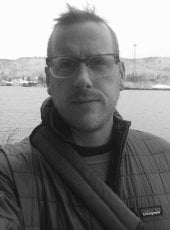 John Baeten, PhD, Industrial Heritage and Archaeology, recently published an article in Water History titled “A century of red water: mine waste, legacy contamination, and institutional amnesia in Minnesota’s Mesabi Iron Range.”
John Baeten, PhD, Industrial Heritage and Archaeology, recently published an article in Water History titled “A century of red water: mine waste, legacy contamination, and institutional amnesia in Minnesota’s Mesabi Iron Range.”
The article examines the first lawsuit filed in Minnesota over the pollution of surface waters from migrating mine tailings, and the ongoing challenge that policy makers face in managing and remembering these legacy contaminants.
The article comes from research Baeten conducted while at Michigan Tech completing his PhD. The work was supported by a grant (Toxic Mobilizations in Iron Mining Contamination) from the National Science Foundation.
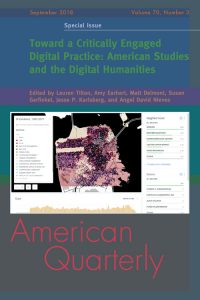 The Keweenaw Time Traveler project is featured in the current issue of American Quarterly, the academic journal of the American Studies Association. This special issue, dedicated to Digital Humanities, highlights eight publicly-engaged projects using digital and spatial technologies to engage important issues in American culture today. The collaborative nature of this project is reflected in the group of authors: Sarah Fayen Scarlett (SS) and Don Lafreniere (SS); Dan Trepal and John D. M. Arnold, PhD candidates and recent graduate in Industrial Heritage and Archaeology; and Robert Pastel (CS). The article is open-access for three months, and the other projects are listed here.
The Keweenaw Time Traveler project is featured in the current issue of American Quarterly, the academic journal of the American Studies Association. This special issue, dedicated to Digital Humanities, highlights eight publicly-engaged projects using digital and spatial technologies to engage important issues in American culture today. The collaborative nature of this project is reflected in the group of authors: Sarah Fayen Scarlett (SS) and Don Lafreniere (SS); Dan Trepal and John D. M. Arnold, PhD candidates and recent graduate in Industrial Heritage and Archaeology; and Robert Pastel (CS). The article is open-access for three months, and the other projects are listed here.
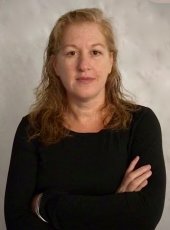 Melissa Baird (SS), attended the Association of Critical Heritage Studies Association (ACHS) at Zhejiang University in Hangzhous, China in September.
Melissa Baird (SS), attended the Association of Critical Heritage Studies Association (ACHS) at Zhejiang University in Hangzhous, China in September.
ACHS is an international organization on which Baird serves as the organization’s secretary.
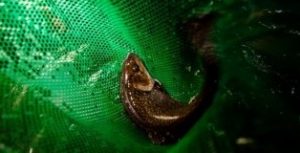 Richelle Winkler was featured in a news story in Michigan Tech News.
Richelle Winkler was featured in a news story in Michigan Tech News.
Recent research proves the stereotype that fishing is a “dad sport” is no longer accurate. Building on earlier research that found the number of people who fish has been steadily declining, a new study conducted by researchers at Michigan Tech and funded by the Great Lakes Fishery Commission, evaluates the shifting demographics within the angling community and looks to determine how the changing composition may impact fishery management decisions.
Among the major findings is that female fishers make up a growing proportion of anglers in the Great Lakes region, as younger generations of women are more likely to fish than their mothers and grandmothers. The increasing number of female anglers in the younger angling community, however, is not sufficient to reverse the overall decline in anglers.
Read the full story on mtu.edu/news.